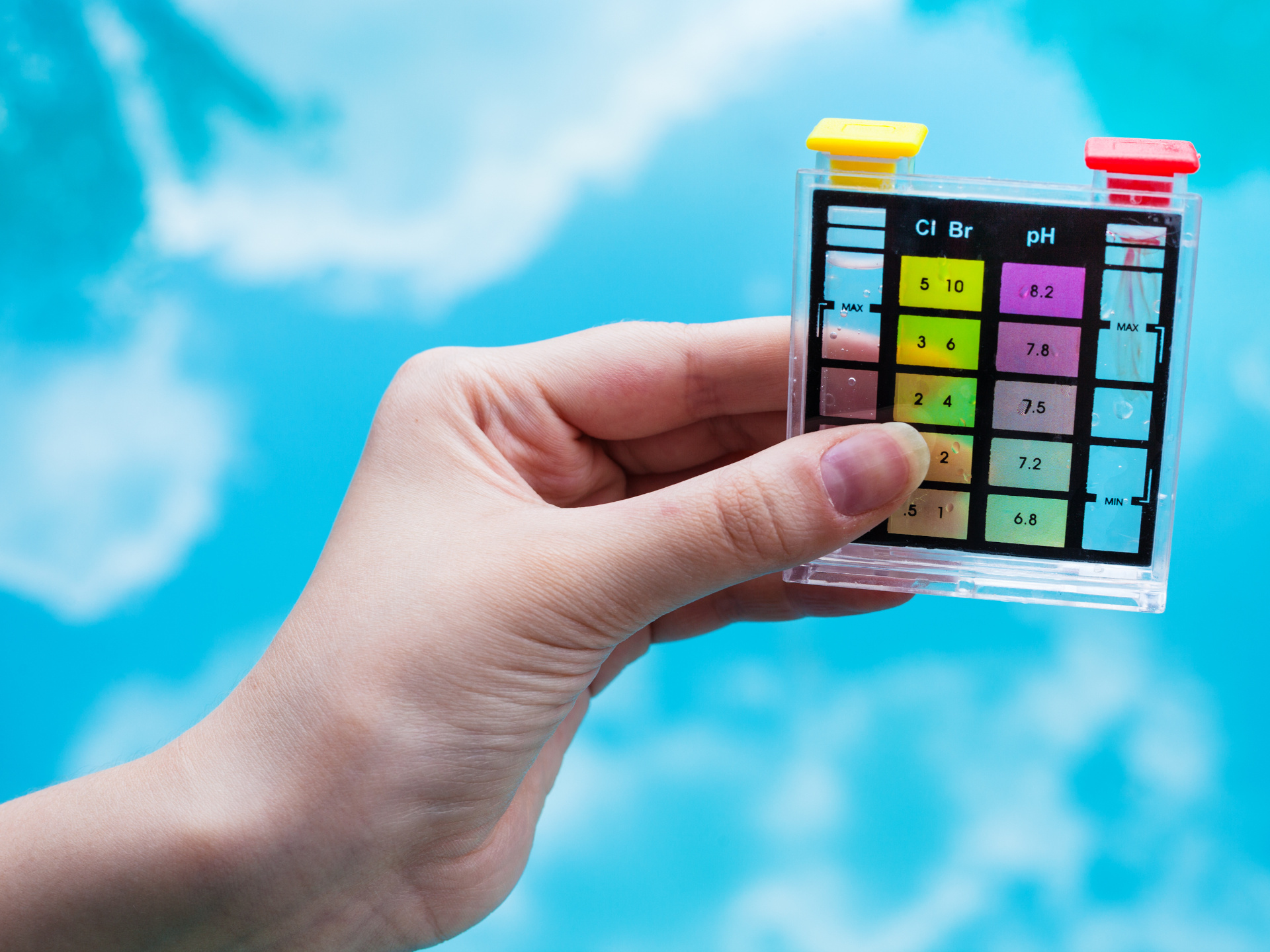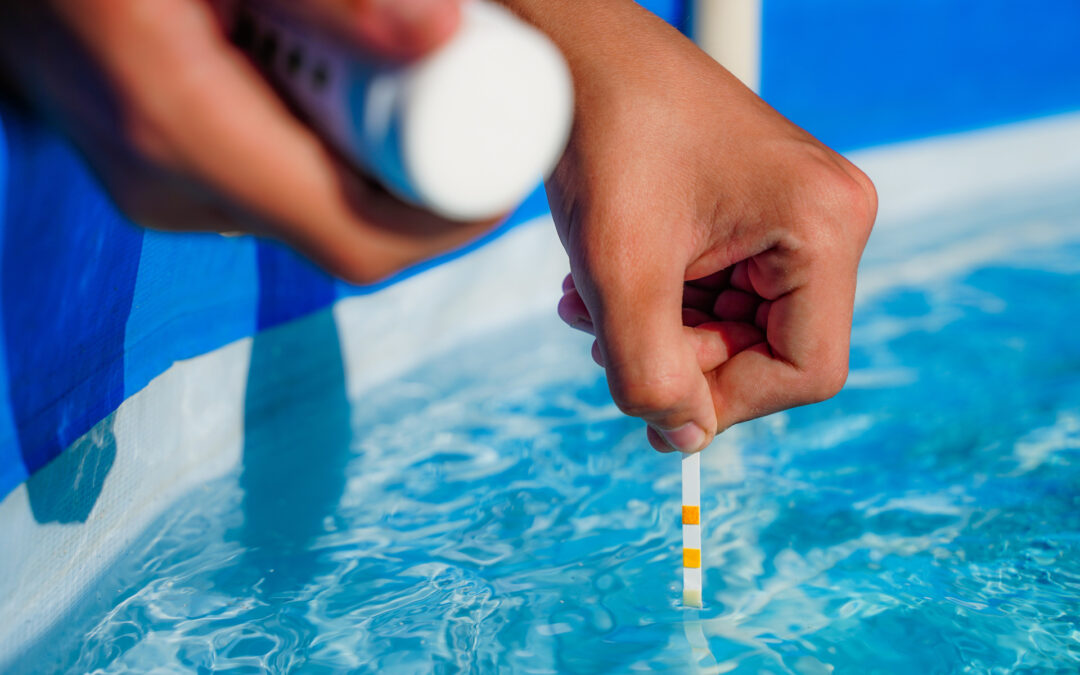With the sun shining across the Okanagan, it is pool time galore. With everyone getting their parties going with water games and gathering friends and family, you wouldn’t want to ruin it by getting rashes or burns now, would you? That would be such a spoiler! To prevent this, be sure to test the pool or hot tub chemistry before jumping in.
What does water testing reveal?
Pool water testing reveals pH and chlorine levels, total alkalinity, and pH (acidity). Testing is crucial all year long. In the summer, some might think it’s a good idea to go heavy on the chlorine. But you’ll feel it hit your eyes and skin. Also, test daily – this is not a one-time endeavour.

Different tests that pool owners should know
There are several ways to complete a pool water test. Pool owners can opt for either test strips or kits. Some of these are below.
Biguanide test strips
Biguanide test strips come in a tube, are simple to use, and tell you instantly your sanitizer level, the pool pH, alkalinity, and calcium hardness levels.
Salt test strip
This testing strip is exclusively for gauging salt level in a bromine pool. Now salt is not particularly harmful or a hindrance to your in-pool shenanigans. However, if the salt dosage goes overboard, it can damage your pool liner or filtering equipment.
Liquid Testing Kits
Back in the day, the OTO test kit was the only available option. Recently, the liquid DPD (N N Diethyl-p-Phenylenediamine) testing kit has made it to the forefront. This one is more advanced and accurate compared to its predecessor. Another benefit is that the DPD kit tests for more chemical levels – it provides readings for total alkalinity, calcium, cyanuric acid, and others.
Other Tests
These entail special tests such as the SafeDip test meter for TDS (Total Dissolved Solids) and ShockCheck test strips for chloramines. Speak to the pros at Deckside Pool and Spas about the right one for your pool.
How often should you test your pool waters?
Swimming pools combine various chemicals, with each having a different test frequency. For instance, tests for chlorine and pH levels should be every two or three weeks. pH levels often need a re-adjustment. Tests for calcium hardness and cyanuric acid levels should be monthly.
Additionally, as a precaution, you should test for heavy metals such as copper and iron once every three to four months. Experts suggest that the recommended for copper and iron is 0ppm.
Test the chemical balance of your waters
Deckside Pool & Spa is here to advise you on keeping your pool water pristine. You can buy kits or have your water tested in our showroom. As needed, we can help you with timely repairs, install new products, and we sell pool chemicals. More so, we are happy to schedule a weekly or client-scheduled maintenance visit. Call or write to us and get your pool tested!
Call or write to us

